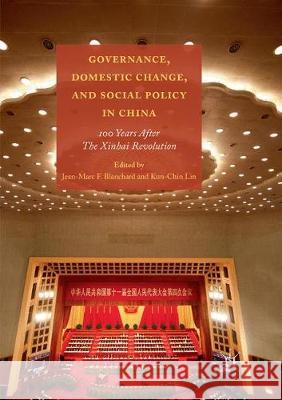Governance, Domestic Change, and Social Policy in China: 100 Years After the Xinhai Revolution » książka
topmenu
Governance, Domestic Change, and Social Policy in China: 100 Years After the Xinhai Revolution
ISBN-13: 9781349953707 / Angielski / Miękka / 2018 / 199 str.
Governance, Domestic Change, and Social Policy in China: 100 Years After the Xinhai Revolution
ISBN-13: 9781349953707 / Angielski / Miękka / 2018 / 199 str.
cena 201,24
(netto: 191,66 VAT: 5%)
Najniższa cena z 30 dni: 192,74
(netto: 191,66 VAT: 5%)
Najniższa cena z 30 dni: 192,74
Termin realizacji zamówienia:
ok. 22 dni roboczych
Dostawa w 2026 r.
ok. 22 dni roboczych
Dostawa w 2026 r.
Darmowa dostawa!
Kategorie BISAC:
Wydawca:
Palgrave MacMillan
Język:
Angielski
ISBN-13:
9781349953707
Rok wydania:
2018
Wydanie:
Softcover Repri
Ilość stron:
199
Waga:
0.26 kg
Wymiary:
21.01 x 14.81 x 1.17
Oprawa:
Miękka
Wolumenów:
01
Dodatkowe informacje:
Wydanie ilustrowane











